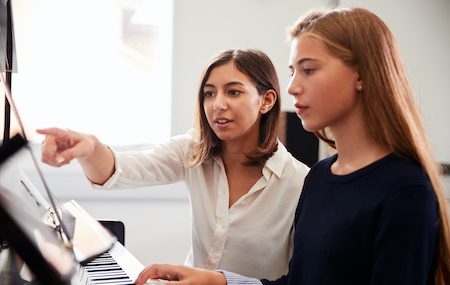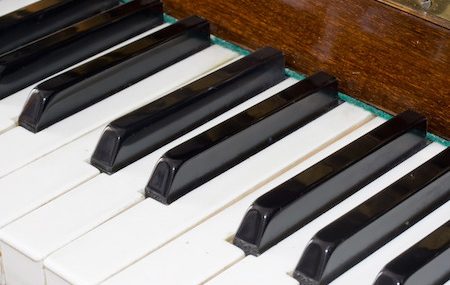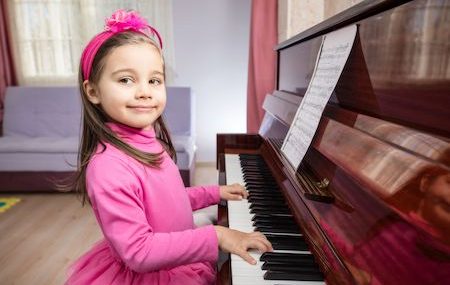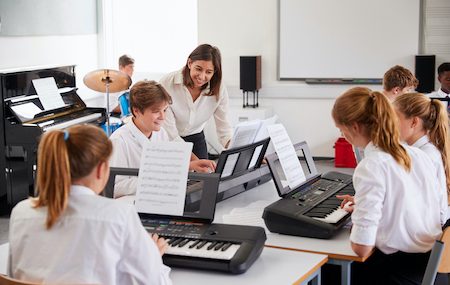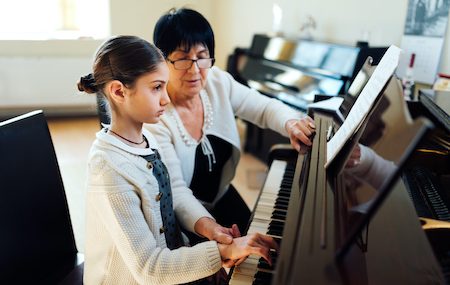There are many hobbies you can teach yourself. Want to knit? Watch a tutorial on YouTube. Want to bake? Pick up a cookbook and work your way through it.
But learning the piano is different. It takes a lifetime to master. And even if you think you’re sitting down at the piano, doing everything right, you could develop habits that hinder more than help.
Of course, there are many ways to go about working with a piano teacher. We’ll cover those more in a minute. But let’s start with a few reasons for how a piano teacher can help you become a better piano player.
Prevent bad habits
Did you know there’s a right way to place your hands on the keyboard? Or how to sit at the piano bench? Or how to place your hands on the keyboard? Now let’s talk about reading music; are you putting emphasis where it belongs? A piano teacher’s job includes a variety of things, including observing to stop bad habits before they become ingrained in your actions. Your learning will be more effective, and you’ll notice a big difference in the way you play the piano.
Accountability
Sometimes having someone hold you accountable for your actions is all you need to push yourself to put in the time it takes to practice. They can help you set goals, and achieve results.
Learn something new
You don’t know what you don’t know. A highly skilled piano teacher can give you a variety of ways to make improvements in your daily playing. Because they are better at playing and have more advanced knowledge, they have ideas that can help transform your playing.
Answers to your questions
What does this mean? Why does that happen? How can I make this better? No matter what hobby you’re bringing into your life, there are always questions that go along with the practice sessions. Having a piano teacher by your side gives you a chance to ask the questions and get an answer that helps you improve your skill.
Increase your commitment
When you have “skin in the game,” you’re more likely to stick with it. Working with a piano teacher might just give you the added motivation you need to stick with it. Piano teachers aren’t a “one size fits all.” If you don’t gel with one, try other teachers out. Also, look at different opportunities; you can take classes in different ways.
- Work one on one
- Take group lessons
- Work with a teacher in person
- Work with a teacher online
- Join a band or orchestra
- Watch videos and attend online music theory classes
The more commitment you give your new hobby, the more results you’ll see throughout.
